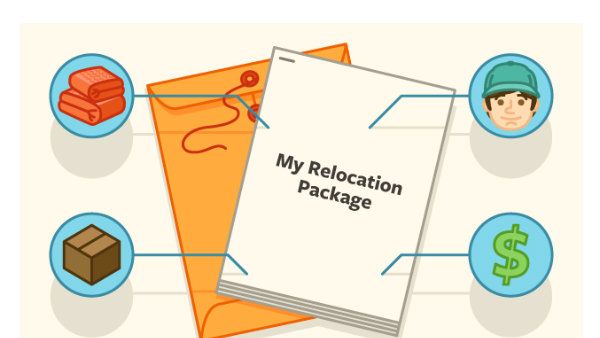Relocation Packages: How to Negotiate Them and More
Check out Lindsey Edison's relocation guide for Moveline.

Image: Courtesy of Moveline
Relocating for that big job? Has the company thrown a big lump sum at you? Maybe they haven't, or maybe you need more. We spoke with Kelly Eidson of Moveline — a cutting-edge company that created software to take care of the hassles of the "big move", bringing you seamlessly from Point A to Point B. Kelly gave us the scoop on different types of relocation packages and most importantly, how to negotiate them.
Marie Claire: Relocation packages vary on the type of position. What if you're right out of college?
Kelly Eidson: Be the first person to start that conversation. First, figure out what your costs are and put together the proposal. With entry level hires, it is important to talk about how much your motivation lines up with the job and also proactively show the company where you are trying to save them money by making the relocation more efficient. You can say "I found these three different ways that I can do this move — the cheapest one is to try and minimize the costs for me to relocate and take this job, but I'm hoping that you could offer me some support in trying to make this relocation happen." By demonstrating your skills and laying out all the options you are also kind of reinforcing that you are the right person to have that job in their organizations.
MC: What if you are in a middle management position?
KE: We find that when companies are trying to fill management roles, that the role is really important to them and it is critical that they find the right hire at the right time. It tends to be that when people are relocating someone from outside the area to one of those middle management roles it probably means they tried to fill that role locally and weren't able to do it. If you are pretty sure that you love the company, they love you, and it is the right fit in terms of talents, it means that they are probably going to be more flexible in terms of getting you out there sooner rather than later.
MC: How would a person go about negotiating?
KE: The company may have a budget in mind for what they want to pay for the relocation package but they aren't going to be the first one to make the move. The candidate is probably thinking, 'I'm moving for this job and I really want to take it but it is going to cost me a lot of money.
It starts with a bit of a standoff where it ends up being someone's job to put the first number out there. In terms of negotiation psychology and what we advise people, is that you are always in the strongest position if you put the number out first.
Have information to back it up and justify that number for why that's the amount of money and resources that you need to get started in the role. The company is always going to spend as little money as they can without comprising that person's well-being coming into the role.
Get exclusive access to fashion and beauty trends, hot-off-the-press celebrity news, and more.
MC: How do companies distribute the relocation sum?
KE: What's most common now is a lump sum is paid out on that candidate's first paycheck what they'll say is, "Here is your salary here is your start date you're relocation allowance is $5,000 dollars." As a candidate you figure out how you will spend that $5,000 dollars.
MC: Where are people relocating to now?
KE: People are moving from the Northeast to the West Coast and Southeast — that is a general mobility trend that has been underway for the last ten years. We see a lot of people that are moving to Texas and a lot of companies in Texas that are willing to pay out for those relocations. It is less common in major cities to pay for relocation, companies will say that a lot of people are moving to New York City because they want to live in New York.